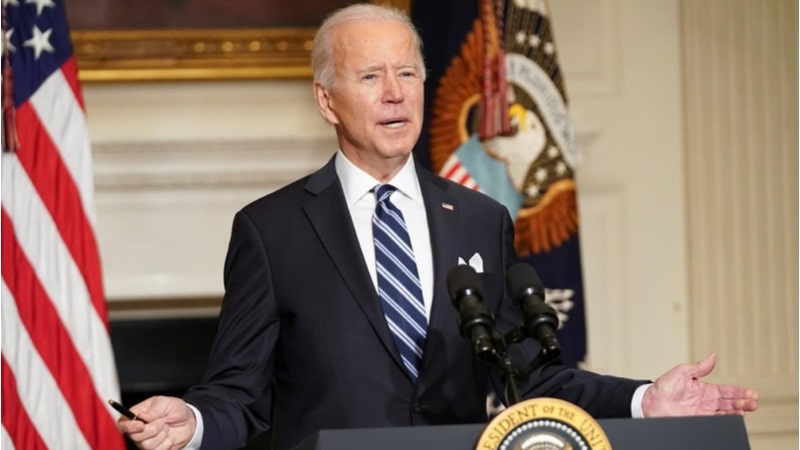
The White House said today it has created a task force made up mostly of top Federal agency officials to “coordinate effective implementation” of the many new programs and mandates created by the $1.2 trillion Infrastructure Investment and Jobs Act signed into law by President Biden on November 15. The task force is being created through a new executive order.
The Infrastructure Investment and Jobs Act provides significant new funding for broadband infrastructure, as well as funding for grants for state, local, tribal, and territorial governments and electric grid owners and operators to shore up their cybersecurity practices.
The task force, the White House said, will be “committed to break down barriers and drive implementation of infrastructure investments across all levels of government to realize the President’s vision of rebuilding our nation’s infrastructure and positioning the U.S. to compete and win in the 21st century.”
At the top of the pyramid for the new task force as co-chairs are newly appointed White House infrastructure Implementation Coordinator Mitch Landrieu, and National Economic Council Director Brian Deese.
Filling out the task force are representatives of the Office of Management and Budget, the White House Domestic Policy Council and Climate Policy Agency, and the heads of the Departments of Interior, Energy, Commerce, Labor, Agriculture, Environmental Protection Agency, and Office of Personnel Management.
With the bill now law, industry officials are have begun lauding the administration for the cybersecurity measures included.
“The inclusion of cybersecurity funding in the Infrastructure Investment and Jobs Act signals the growing awareness that cybersecurity underpins all critical infrastructure – including the electrical grid, water infrastructure, and transportation systems,” Stephen Kovac, Chief Compliance Officer and Head of Global Government Affairs for Zscaler, said in a statement to MeriTalk.
“The growth of digital infrastructure has introduced new risks, but modern zero trust infrastructure is the best opportunity to secure critical services, he said. “We are encouraged to see the cyber funding included in this bill – including the significant funding for state and local governments. This funding builds on the steps the Federal government is taking to deploy zero trust security, including the cybersecurity Executive Order, the draft Federal Zero Trust Strategy, and the draft zero trust maturity model.”
